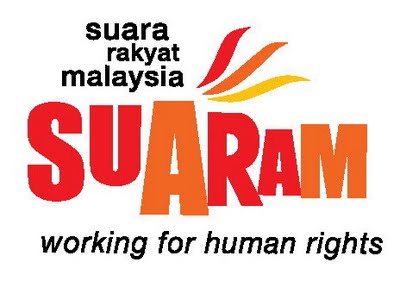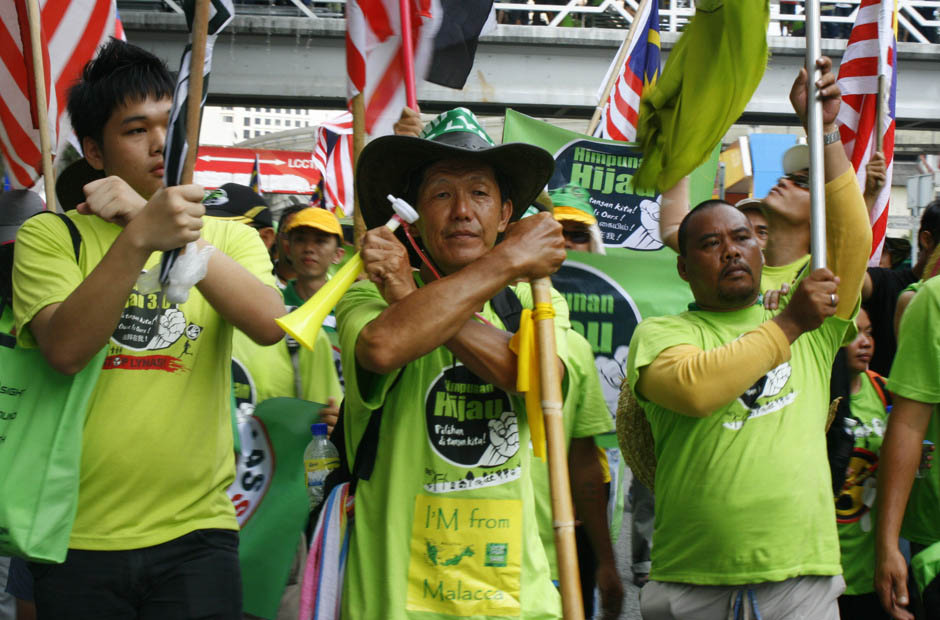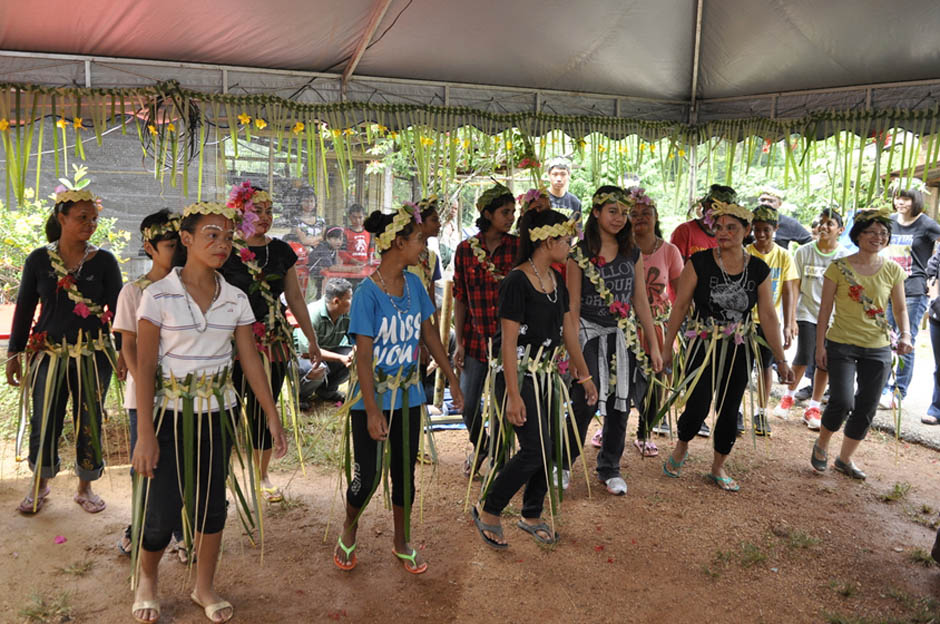| Mission Report on Malaysia by Working Group on Arbitrary Detention: Implement Recommendations Now! |
 |
 |
 |
| Tuesday, 08 March 2011 00:55 |
|
“Classic Cases of Arbitrary Detention” under the ISA, EO, DDA, RRA In their mission report, the WGAD states that it is “seriously concerned” about the existence and enforcement of laws which provide for detention without trial in Malaysia, namely the Internal Security Act (ISA), the Emergency (Public Order and Prevention of Crime) Ordinance (EO), the Dangerous Drugs (Special Preventive Measures) Act (DDA), and the Restricted Residence Act.
“(These laws) impede the detainee’s right to a fair trial, consecrated in the Universal Declaration of Human Rights and by international human rights customary law. They also severely restrict detainees’ access to legal counsel.”
The working group has also stated its concern on the periodic review by the Advisory Board. The working group considers that an appearance before an Advisory Board does not fulfill minimal fair trial guarantees. Although detainees may appeal every six months to the Advisory Board on the preventive laws, the detainees are not notified of its recommendations, its recommendations are not binding and they are not made public. On the other, the defence lawyers may appear on behalf of the detainee, attend the hearing without access to all the documentation, including evidence, and have no right to call witnesses.
During the press conference held by the WGAD on 18 June 2010, its Chairperson-Rapporteur El Hadji Malick Sow stated that detentions under the ISA, the EO, and the DDA are “classic cases of arbitrary detention”. The WGAD also noted with concern that “thousands of people” are being detained under the EO and the DDA.
“Systematic” Detention of Refugees
Also of concern to the WGAD is the detention of refugees and asylum seekers. The WGAD’s Chairperson-Rapporteur has described the detention of refugees as “systematic”, noting that even refugees who are in possession of identity cards issued by the United Nations High Commissioner for Refugees are not exempt from arrests and detentions.
Malaysia’s non-ratification of the 1951 Convention on the Status of Refugees and non-recognition of the status of refugees and asylum seekers have resulted in the detention of many refugees under immigration laws in Malaysia for their alleged “illegal presence” in Malaysian territory. The WGAD notes that detainees who have served prison sentences under Immigration laws are often held in immigration detention centres for an indefinite period while awaiting deportation to their countries of origin.
Police Force: Excessive Power leads to human rights violations
The working group has also expressed concern over the excessive power given to the police force in Malaysia particularly under the preventive laws. The working group is of the view that the excessive power given to the police has led to their eluding the normal penal procedure for common crimes and offences. This has given an opportunity to the police and the Home Minister to detain persons without the need to sustain evidence or to probe penal responsibility. The Working group also concludes that the police often fail to inform the detainees about their rights to contact family members and to consult a lawyer of their choice.
The working group also raises serious concern about the deaths that occur during the police detention and while in police custody; the ill treatment and torture in police stations and detention centres in order to obtain confessions and incriminatory evidence.
Repeal All Detention-without-Trial Laws
On detention-without-trial laws, the WGAD unambiguously recommends that the ISA, the EO, the DDA, and the RRA be repealed. In the interim period, while the laws are in force, the working group has urged that the decisions by the non-judicial Appeals Advisory Board should be binding on the Home Minister, and decisions with regard to the Act should be subject to judicial review.
SUARAM thus calls upon the government to re-think the proposed amendments to all the detention-without-trial laws in the light of the latest WGAD’s recommendations. The ISA, the EO, the DDA, and the RRA must be repealed forthwith; the government should immediately end all arrests under the detention-without-trial laws, and release all those currently detained under these laws or charge them in a fair and open court.
End Detention of Refugees, Asylum Seekers and Other Vulnerable Migrants
On the detention of immigrants, the WGAD states that:
“Detention of immigrants should be decided upon by a court of law, on a case by case basis, and pursuant to clearly and exhaustively defined criteria in legislation, under which detention may be resorted to.”
The WGAD stresses that immigrants should have an effective remedy to challenge the necessity and legality of their detention at any time; that immigration detention should not be applied to refugees, asylum seekers and vulnerable groups of migrants, including unaccompanied minors, families with minor children, pregnant women, breastfeeding mothers, elderly persons, persons with disabilities, or people with serious and/or chronic physical or mental health problems.
The WGAD has also urged the Malaysian government to ratify the 1951 Convention on the Status of Refugees, a recommendation which has been made on numerous occasions by SUHAKAM as well as UN member states during the Universal Periodic Review of Malaysia in February 2009.
SUARAM strongly urges the government to immediately implement these recommendations and to stop arresting refugees, asylum seekers and other vulnerable groups of migrants. The government should provide a concrete timeframe for the ratification of the 1951 Convention on the Status of Refugees.
Invite UN Experts in Other Areas Too
While Special Procedures Mandate Holders of the UN Human Rights Council can only visit a country with the host government’s invitation, SUARAM would like to point out that the WGAD had in fact made a request for a country visit to Malaysia way back in 2008. It was only in early 2010 that the Malaysian government officially and publicly confirmed its acceptance of the WGAD’s request to visit Malaysia.
To date, the Malaysian government has still not responded to eight pending requests by other Special Procedures Mandate Holders, namely the Special Rapporteur on Human Rights Defenders (request made in 2002); the Special Rapporteur on Indigenous Peoples (2005); the Special Rapporteur on Freedom of Religion (2006); the Special Rapporteur on the Human Rights of Migrants (2006); the Special Rapporteur on Human Rights and Counter-Terrorism (2005); the Independent Expert on Minority Issues (2007 and 2009); the Special Rapporteur on Racism (2008); and Special Rapporteur on the Independence of Judges and Lawyers (2009).
SUARAM therefore strongly calls upon the Malaysian government to extend standing invitations to all Special Procedures Mandate Holders of the UN Human Rights Council which have made requests for country visits to Malaysia as soon as possible.
Implement WGAD’s Recommendations Now!
Today, WGAD’s final report is being submitted to the UN Human Rights Council. The recommendations of the Working Group are clear enough for the government to make immediate human rights reforms. The working group has also urged the Malaysian government to become a party to the main international instruments on human rights, particularly the International Covenant on Civil and Political Rights (ICCPR), International Covenant on Economic, Social and Cultural Rights (ICESCR), the Convention against Torture and other Cruel, Inhuman or Degrading Treatment or Punishment (CAT), the International Convention on the Elimination of All Forms of Racial Discrimination, (CERD), the Convention relating to the Status of Refugees and the Protocol there to, the Convention relating to the Status of Stateless Persons, the Convention on the Reduction of Statelessness and the Rome Statute of the International Criminal Court (ICC).
Similar recommendations have already been made by other bodies such as the Human Rights Commission of Malaysia (SUHAKAM), the Royal Commission on the Police, and UN member states. As such, there is no justification for the government to delay implementing these recommendations immediately, especially when Malaysia currently has a seat in the Human Rights Council.
The Malaysian government’s attitude toward these recommendations of the WGAD will be an indication of either its commitment to human rights or otherwise, its sheer hypocrisy while sitting in UN Human Rights Council. |

 The findings and recommendations of the United Nations Working Group on Arbitrary Detention (WGAD) from its visit to Malaysia from 7 to 18 June 2010 have added to the long list of recommendations and concerns pertaining to the Malaysian government’s legislations, policies and practices of arbitrary detention. Suara Rakyat Malaysia (SUARAM) has despatched Ms Temme Lee, SUARAM Secretariat member to make interventions at the UN Human Rights Council after the mission report presented by the WGAD
The findings and recommendations of the United Nations Working Group on Arbitrary Detention (WGAD) from its visit to Malaysia from 7 to 18 June 2010 have added to the long list of recommendations and concerns pertaining to the Malaysian government’s legislations, policies and practices of arbitrary detention. Suara Rakyat Malaysia (SUARAM) has despatched Ms Temme Lee, SUARAM Secretariat member to make interventions at the UN Human Rights Council after the mission report presented by the WGAD





